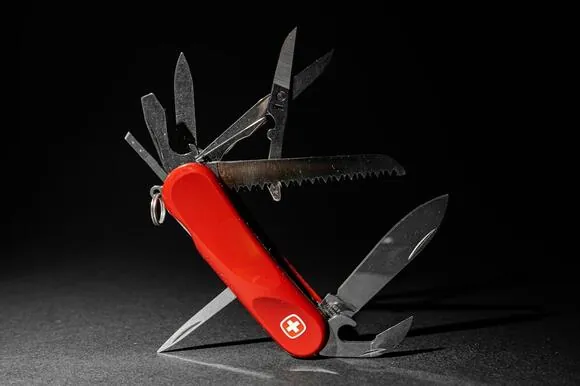Florida’s laws regarding the possession and transportation of knives, including pocket knives, are subject to specific regulations. These laws have undergone significant changes in 2023, emphasizing the importance for both residents and visitors to remain up-to-date and well-informed on the matter.
Understanding Florida’s Knife Laws
In Florida, whether you can legally carry a pocket knife depends on factors such as the type of knife, how it is carried, and the age of the individual. Effective July 1, 2023, Florida laws permit the concealed carry of any knife, with the exception of ballistic knives, without requiring a permit. This includes pocket knives, switchblades, and OTF (Out The Front) knives.
Age Restrictions
To carry a concealed knife in Florida, individuals must be at least 21 years old, except for active-duty military personnel and military veterans discharged under honorable conditions who are under 21.
Prohibited Knives
Ballistic knives, also known as knives equipped with blades that can be ejected or propelled, are not allowed in Florida. The state strictly prohibits the possession, manufacture, sale, or use of such knives.
Exceptions and Special Circumstances
There are, however, exceptions to these laws. People who engage in outdoor activities such as hunting, fishing, camping, trapping, archery, hiking, and backpacking are generally allowed to possess a knife without facing legal consequences. Moreover, certain professional and educational environments, such as culinary arts courses or woodworking classes, may also permit the use of knives within their specific activities.
Concealed Carry of Knives
Florida’s knife laws saw a major revision when HB 543 was enacted in 2023. This legislation eliminated the limitations on blade length for carrying a concealed knife without a permit. Previously, individuals were only allowed to carry knives with a blade measuring 4 inches or less without a license. However, the new law enables individuals to carry any type of knife, whether concealed or openly, with the exception of ballistic knives.
Legal Implications and Penalties
Violating knife laws in Florida can lead to a range of consequences, including fines and imprisonment. It is important to understand the state’s preemption law, which governs local regulations on knives. It is worth noting that local governments may have their own additional ordinances in place.
Key Court Cases Shaping Knife Laws
Several court cases have been instrumental in shaping and clarifying Florida’s knife laws. One notable case is L.B. v. State of Florida, which established the definition and guidelines for carrying a regular pocket knife, especially within educational institutions. Another significant case is State v. Holley, which drew a distinction between dangerous weapons and utility knives in relation to concealed carry laws. These court decisions have had a profound impact on how Florida’s knife laws are understood and applied.
Important Considerations
-
- Carrying in Public Spaces: Some areas, such as schools, government buildings, and locations serving alcohol, may have specific restrictions or prohibitions on carrying knives.
- Visibility in Vehicles: Knives in vehicles should be visible to avoid being classified as concealed weapons.
- Mandatory Evacuations: Florida law provides exceptions for concealed deadly weapon restrictions during mandatory evacuation orders or state of emergency declarations.
Conclusion
Understanding Florida’s knife laws is essential to navigate through the various types of knives allowed, age restrictions, exceptions, and local ordinances. It is crucial to stay informed and compliant with these regulations to avoid any legal complications.
Read More:
- Understanding the Legal Implications of Skipping Jury Duty in California
- Texas has transported 102K migrants to sanctuary cities since 2022

